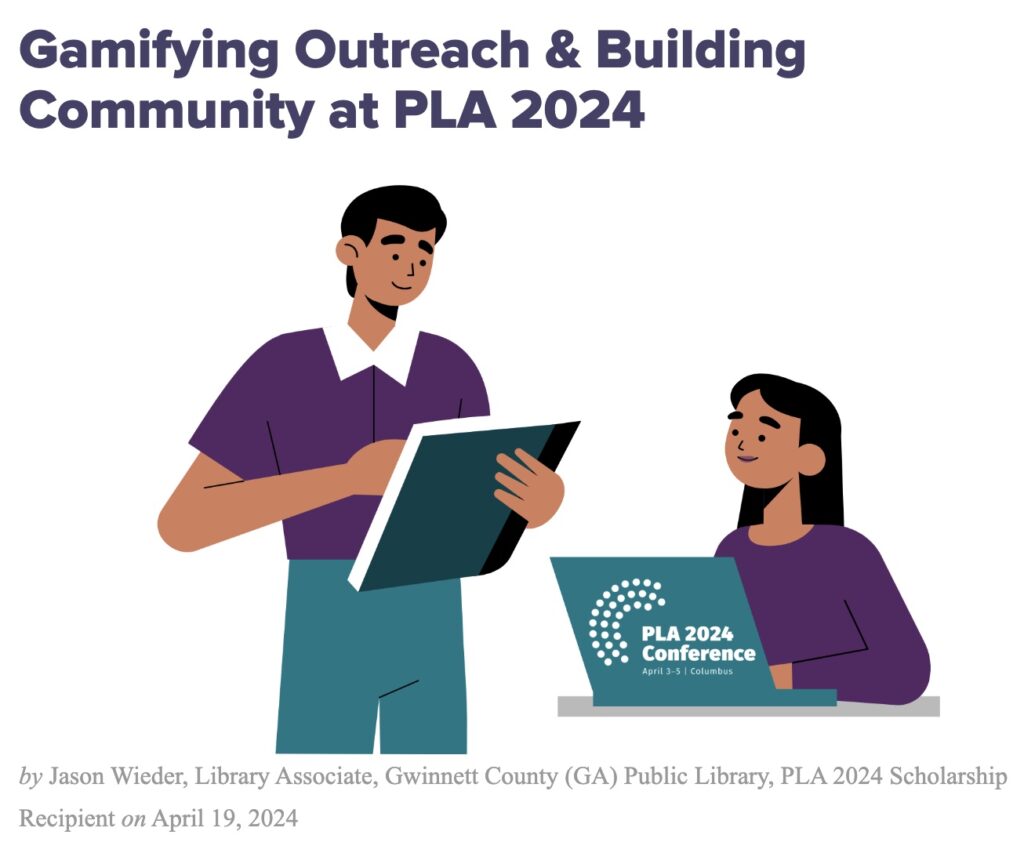This nice write-up of our PLA session last month by Jason Wieder was published in Public Libraries Online: A Publication of the Public Library Association:
“The 2024 Public Library Conference was the experience of a lifetime. Along with the opportunity to network with peers, I met my library hero, Mychal Threets. I also attended several informative sessions ranging from employee resource groups to sessions on increasing accessibility and outreach efforts. As the Gwinnett County Public Library Ambassador for the Georgia Library for the Blind and Print Disabled, I found it highly valuable to learn more about the efforts public library systems nationwide have made to increase accessibility to their systems. Accessibility, however, comes in many forms; beyond simply providing accessible services, having easy-to-access outreach can help give non-library users access to services from public libraries. With this idea in mind, one session I found particularly valuable was “Engaging Beyond Our Walls: Making Neighborhood Games & Outdoor Storytelling.” David Quick, Adult Services Coordinator at DC Public Library, and Benjamin Stokes, Director of the Playful City Lab and Associate Professor at American University, led this presentation.
“Professor Stokes, discussing the conclusions of his 2020 book Locally Played, highlighted the cultural shift of gaming and its relationship to screen time; with the advent of screens, gaming in traditional manners has become more deeply valued. These gaming mechanics work through American University’s free, open-source application Hive Mechanic. This application allows its users to build blocks of dialog that can engage with historical monuments, storywalks, and even library ghosts. This technology can be both accessible and cheap; through using text messages for interaction, a phone number can cost as little as one dollar per cell phone line and one cent per message.
“Another aspect of this initiative the presenters discussed is the importance of community building and having local community members tell their own stories about their landmarks compared to a larger technology company operating nationally. Through using the ideas and voices of local community members, gamifying history in this manner can help to build a community-controlled folk practice that will help to strengthen the ties people have to their local community for generations to come.
“Being an American University alumnus, I was pleasantly surprised to discover that my alma mater partnered with the DC Public Library. I was excited to learn more about this community partnership and wondered how I could participate in this endeavor. While this gamifying initiative is national in scale, it has not yet hit the state of Georgia. Considering that the city of Suwanee is in the process of building a park next to our public library, I wonder if having a similar initiative would be of any benefit. Only time will tell how this initiative grows, with advanced ideas for this technology spanning from utilizing city data to create responses to creating a text-based raffle system to dole out prizes from local businesses. I’m excited to see how this technology progresses and will monitor its progress as this project develops.
>> Read the full article here by Jason Wieder
